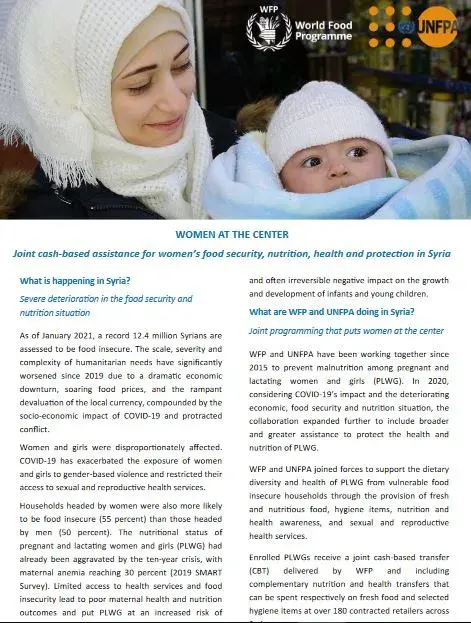As of January 2021, a record 12.4 million Syrians are assessed to be food insecure. The scale, severity and complexity of humanitarian needs have significantly worsened since 2019 due to a dramatic economic downturn, soaring food prices, and the rampant devaluation of the local currency, compounded by the socio-economic impact of COVID-19 and protracted conflict. Women and girls were disproportionately affected. COVID-19 has exacerbated the exposure of women and girls to gender-based violence and restricted their access to sexual and reproductive health services.
The World Food Programme (WFP) and UNFPA have been working together since 2015 to prevent malnutrition among pregnant and lactating women and girls. In 2020, considering COVID-19’s impact and the deteriorating economic, food security and nutrition situation, the collaboration expanded further to include broader and greater assistance to protect the health and nutrition of those in need.
This fact sheet provides a brief overview of these joint programming efforts.


